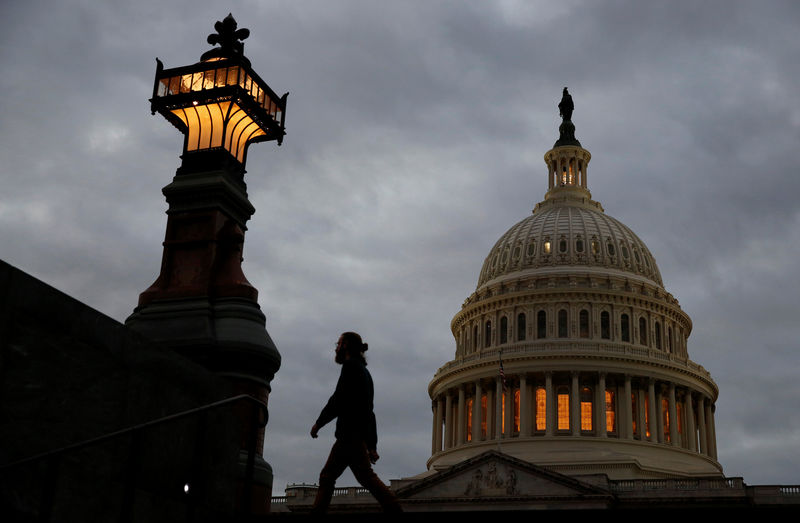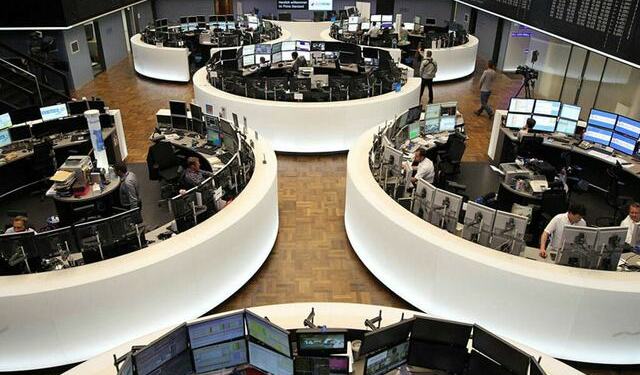 © Reuters. The U.S. Capitol building is lit at dusk ahead of planned votes on tax reform in Washington
© Reuters. The U.S. Capitol building is lit at dusk ahead of planned votes on tax reform in WashingtonSAN FRANCISCO (Reuters) – The U.S. tax overhaul that looks set to get a final nod from Congress on Tuesday will give the economy a bit of a lift next year, but will have little lasting impact, according to a brief analysis from the Federal Reserve Bank of San Francisco.
“If Congress passes the tax reform legislation by the end of this year or early next year, we expect a modest boost to GDP growth in 2018 and 2019,” senior research advisor Zheng Liu wrote in the regional Fed bank’s latest edition of FedViews, prepared ahead of the Fed’s policy-setting meeting last week but not made public until this week. “We expect real GDP to grow at an average annual rate of about 2.25 percent through 2018, before slowing to 1.75 percent in 2019.”
Forecasts for both years are lower than that of most Fed policymakers, according to projections published by the central bank last week that show a median expectation of 2.5 percent growth for next year and 2.1 percent in 2019.
But they are higher than the regional Fed bank’s own forecast just three months ago, although it is not clear how much of the increase comes from the tax plan and how much reflects stronger economic data in recent months. The bank’s September FedViews pointed to economic growth of between 1.5 percent and 1.75 percent for both 2018 and 2019.
The San Francisco FedViews updated forecast reflects expected rate hikes to come over the next couple of years, “as well as the longer term effects of population aging and slower productivity growth,” Zheng wrote.
The Republican-controlled Congress votes Tuesday on the biggest overhaul of the U.S. tax system in more than 30 years, potentially sending the bill to President Donald Trump’s signing desk by Wednesday.
Fusion Media or anyone involved with Fusion Media will not accept any liability for loss or damage as a result of reliance on the information including data, quotes, charts and buy/sell signals contained within this website. Please be fully informed regarding the risks and costs associated with trading the financial markets, it is one of the riskiest investment forms possible.
Source: Investing.com




























